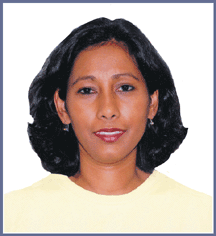Opening Position
May 2009
 This bear market and economic crisis has resulted in a lot of investors losing faith in the buy & hold approach to investing. This only goes to show that perhaps modern financial theories such as the efficient market hypothesis and the random walk theory need to be challenged and reconsidered. The quantitative models used by mutual funds and hedge funds do work well, but let us not forget that they have their limitations.
This bear market and economic crisis has resulted in a lot of investors losing faith in the buy & hold approach to investing. This only goes to show that perhaps modern financial theories such as the efficient market hypothesis and the random walk theory need to be challenged and reconsidered. The quantitative models used by mutual funds and hedge funds do work well, but let us not forget that they have their limitations.
Take a look at the 2008 US housing market collapse. Clearly, the possibility of risk in the quantitative models that were used to make extremely speculative investments look attractive was not acknowledged. The problem was not necessarily in the model itself, but those who were using the model to make those risky investments. Did they not realize the possibility of a risk existing in the model? Maybe it was too complicated for them to understand, or maybe they didn’t want to take the time to understand it. Maybe they didn’t care. It goes without saying that human behavior, specifically greed, also has a small role to play in such matters. When you are having a good time, do you ever stop to think whether the fun will ever end? The lack of foresight is, without a doubt, the reason behind the collapse of the markets.
Although it may not be of a similar magnitude, you can incorporate the lessons learned from the market collapse into your own trading systems. When designing a system, you must factor in the element of risk. You also have to acknowledge that your system is not going to work the way you want it to every single time. There are many avenues you can utilize when participating in the market, regardless of whether it is a bull market or a bear market. You must consider all the possibilities, whether positive or negative.
In the midst of a bear market, you may need to look for ways to hedge your positions. Options have always been considered to be useful during bear markets, but they tend to be more complicated. In this issue of Technical Analysis of Stocks & Commodities, you will find a few articles on trading options, which we hope will make them less intimidating. We also offer some articles on risk management. As a trader, you are responsible for your financial health. You can’t blame your financial advisor, your broker, or your strategic models when you make mistakes. Unfortunately, all you can do is blame youself.
Whenever you find yourself making too much too fast, expect the worst to creep up behind you and tap you on your shoulder. Always ask yourself, “What if?”

Jayanthi Gopalakrishnan, Editor